(LĐXH) - When children and grandchildren are busy with modern life, the elderly easily fall into feelings of loneliness and lack of connection. The Daycare model was born as a creative solution.
This model provides a space for learning, socializing and providing comprehensive care for the elderly. The government needs to have policies to support infrastructure development and tax incentives to encourage businesses to invest in this field to expand services, helping more elderly people access it more easily.
Many practical benefits from the Daycare model
According to Dr. Nguyen Van Minh, a sociologist, the boarding school model is an effective solution to help the elderly have a safe place to live, not only improving their physical health but also maintaining their mental health through community activities. These classes and activities also help them avoid loneliness and the feeling of being abandoned in modern society.
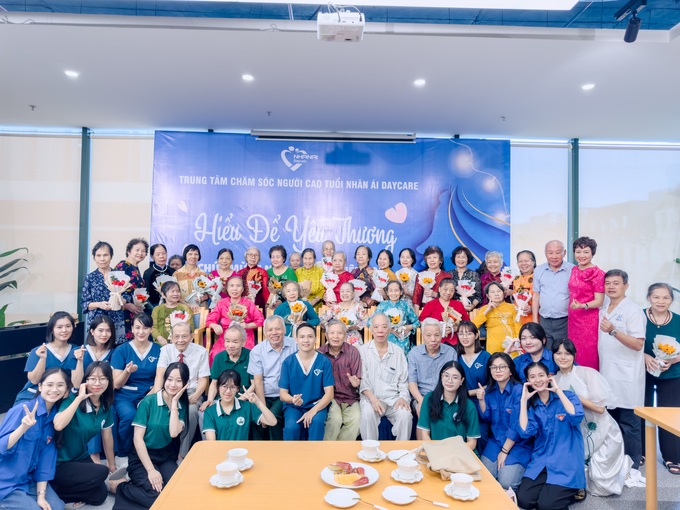
“The daycare model for the elderly is very suitable for the elderly and modern families, helping to reduce the burden on children and grandchildren when having to balance work and care for the elderly because in the morning the elderly “go to school”, in the afternoon they still return home to their children and grandchildren, there is no concept like in nursing homes.
This model also creates opportunities for the elderly to learn new knowledge, such as how to use smartphones or tablets to stay connected with their children and grandchildren.
With the increasing trend of population aging, the demand for elderly care services is increasing. The Daycare model not only meets the needs of the elderly but is also a sustainable solution, contributing to reducing financial pressure on the health care system and society.
In addition, Daycare also contributes to promoting social awareness of the important role of the elderly, encouraging them to have a more active and optimistic life," said Dr. Nguyen Van Minh.
Dr. Nguyen Van An at Nhan Ai Daycare Center shared: “The elderly often face psychological problems such as loneliness, depression and anxiety, especially when their children and grandchildren do not have much time to spend with them.
The health of the elderly has already declined due to age, leading to "double illness" due to underlying diseases such as: Bones and joints, Parkinson's, blood pressure, cardiovascular disease, diabetes... or people after a stroke whose mobility and brain thinking are also affected, less flexible.
Although the elderly are cared for by their children and grandchildren and their material needs are met, their psychology and thoughts are not comfortable, they are often sad and stressed, so no one can control them. Many families have domestic helpers, but they are just ordinary workers and do not have the expertise to care for the elderly.
Therefore, when they come to the boarding care facilities, the elderly are cared for in all aspects, interact with other elderly people of the same age, and do appropriate physical and functional exercises, which makes them feel very comfortable and at ease. In addition, the elderly are also cared for nutritionally with a daily menu suitable for their age, pathology, and illness.
Nurse Nguyen Thi Thao Mo, with more than 10 years of experience caring for the elderly, said: If they only stay at home, the elderly are often lazy to exercise, eat irregularly, and do not have anyone to take care of them properly.
When coming to the Daycare center, they not only receive daily medical care, nutrition and hygiene, but also have the opportunity to participate in many rich activities to improve both physical and mental health, to interact, chat, do light exercise and participate in group activities on time and with a separate regimen for each elderly person.
Having a fun and safe living environment helps the elderly maintain good health and mental comfort, avoiding feelings of loneliness or depression when staying at home alone. These activities help the elderly maintain better health, improve mobility, maintain flexibility, and reduce the risk of chronic diseases.
Mentally, participating in learning, creative and social activities helps stimulate the brain, enhance memory, and reduce the risk of memory-related diseases such as Alzheimer's.
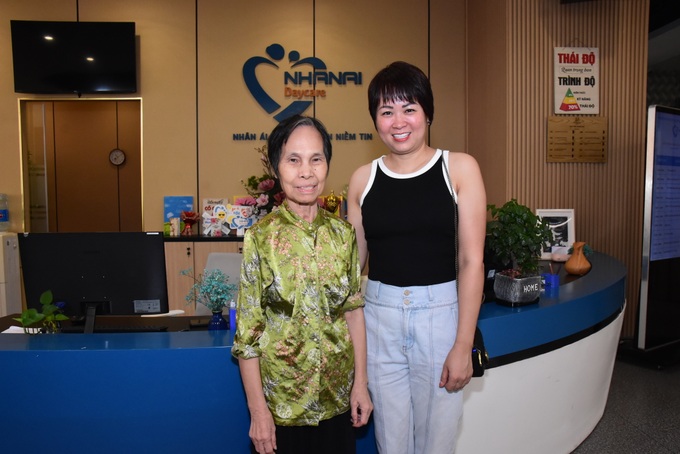
Need support policies from the state
Despite initial successes, the Daycare model in Vietnam still faces many challenges. According to Ms. Nguyen Thi Kim Thanh, Director of Nhan Ai Daycare Center, this model requires facilities suitable for the elderly such as convenient walkways, medical equipment, spacious living areas, as well as safe learning tools, so finding a suitable location is very difficult.
“Currently, like any other type of business, we have to rent premises at the same price as coffee shops and gyms, and pay the same expenses as they do. This partly affects the composition of the “tuition” that seniors have to pay when using the service. We still have to borrow capital from banks like other business models,” Ms. Thanh shared.
In addition, to care for and guide the elderly, a team of personnel with expertise in medicine, psychology and elderlyeducation is needed. However, the number of such personnel is currently limited and has not been trained in-depth in elderly care...
From the perspective of a relative, Ms. Phi Thi Huong Quynh (daughter of Ms. Dinh Thi Viet Phuong, 75 years old) who is receiving semi-boarding care feels very secure sending her mother here.
“With the service package of 600,000 VND/person/day, 15,600,000 VND/month (6 days/week), not including: Medicine, diapers and other actual expenses, the current service price is still high compared to the general level.
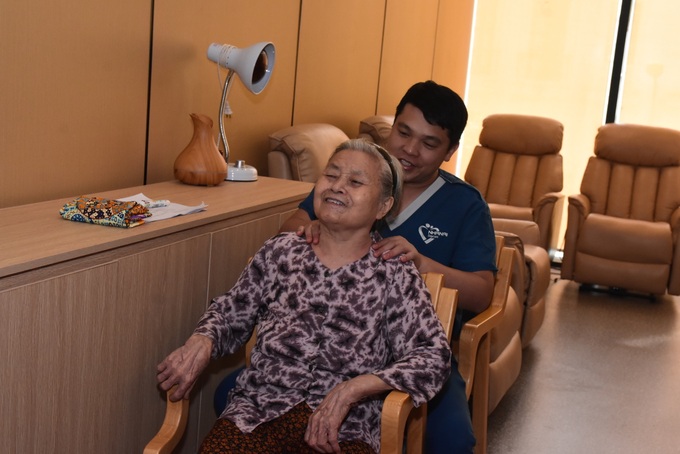
To replicate the model, I hope the State will have a policy of financial support for boarding care centers to reduce the economic burden and encourage the use of these very practical services," Ms. Quynh hopes.
Sharing the same view, Mr. Nguyen Xuan Lap, Head of the Elderly Care Committee (Vietnam Association of the Elderly), said that the State needs to have policies to support infrastructure development and tax incentives to encourage businesses to invest in this field to expand services, helping more elderly people to access more easily.
In addition, the centers need to expand cooperation with educational institutions and community organizations to provide more diverse activities such as gym classes, dance, qigong, and use of information technology.
“To maintain the model in the long term, the facilities need to develop self-revenue generating activities such as organizing cultural exchanges and exhibitions of handicraft products of the elderly, helping them feel useful and more motivated to participate. In addition, it is necessary to train a team of staff with professional skills, so that they can care for and support the elderly in a professional manner.
In particular, it is necessary to promote communication about the benefits of the model to help the community better understand boarding classes for the elderly, dispelling concerns of families and the elderly themselves," Mr. Lap commented.
| According to the General Department of Population and Family Planning (Ministry of Health), the number of elderly people in Vietnam will reach 16.8 million in 2039 and 25.2 million in 2069. From 2036, Vietnam will enter the aging population period, with 14.2% of the population aged 65 and over. Vietnam is currently one of the countries with the fastest aging population in the world. |
Thuy Huong - Cu Hoa
Labor and Social Affairs Newspaper No. 141
Source: https://dansinh.dantri.com.vn/xoa-doi-giam-ngheo/khi-nguoi-gia-di-hoc-mau-giao-mo-hinh-cham-soc-nguoi-gia-can-nhan-rong-20241121224610481.htm












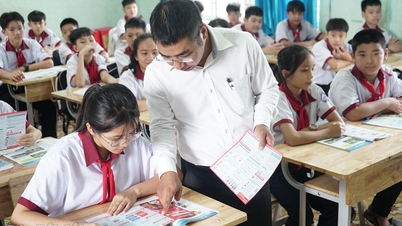











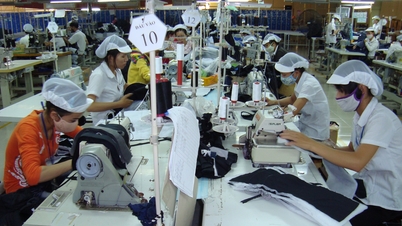

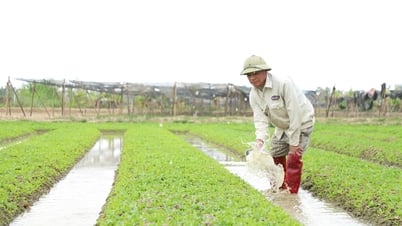















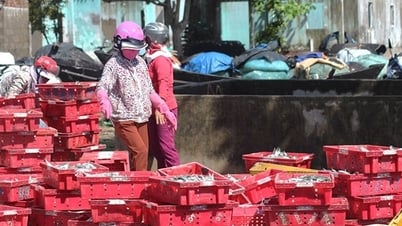

















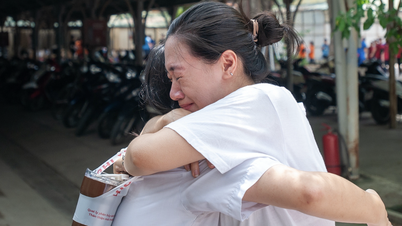

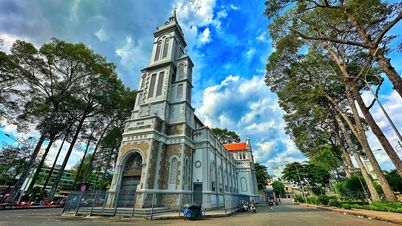










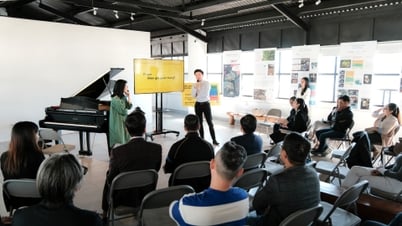


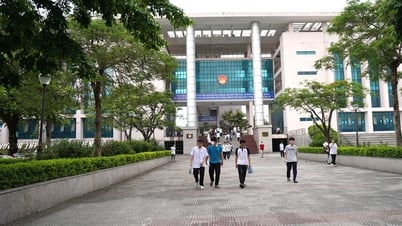

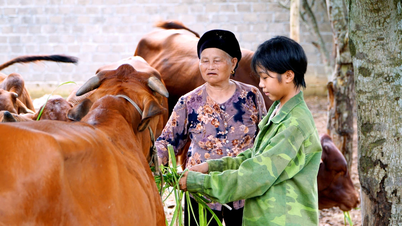













![[OCOP REVIEW] Tu Duyen Syrup - The essence of herbs from the mountains and forests of Nhu Thanh](https://vphoto.vietnam.vn/thumb/402x226/vietnam/resource/IMAGE/2025/6/5/58ca32fce4ec44039e444fbfae7e75ec)




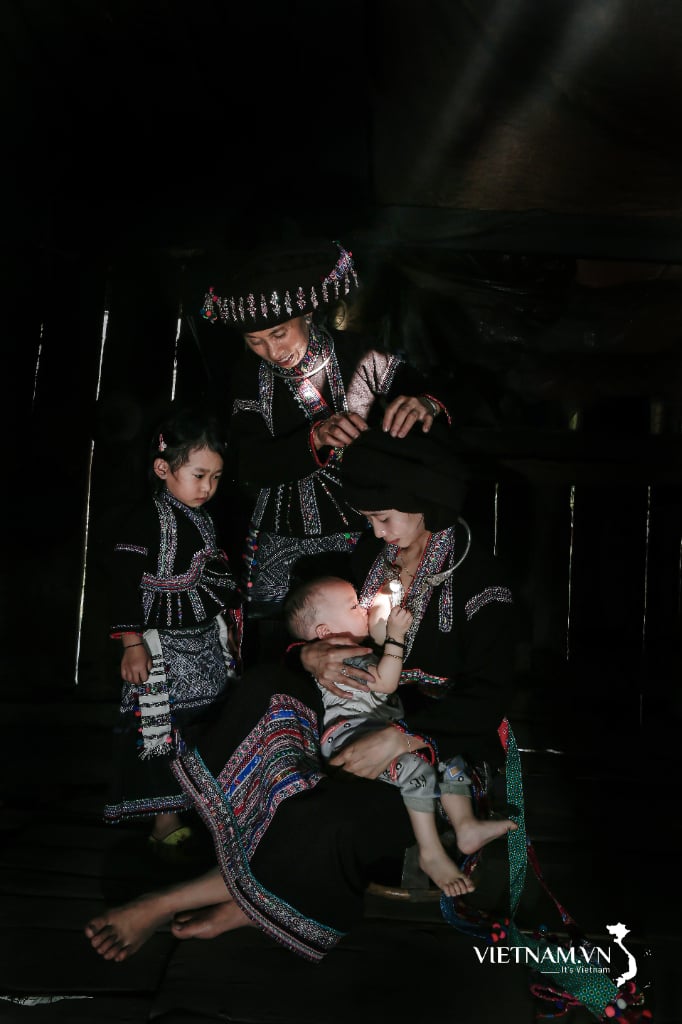
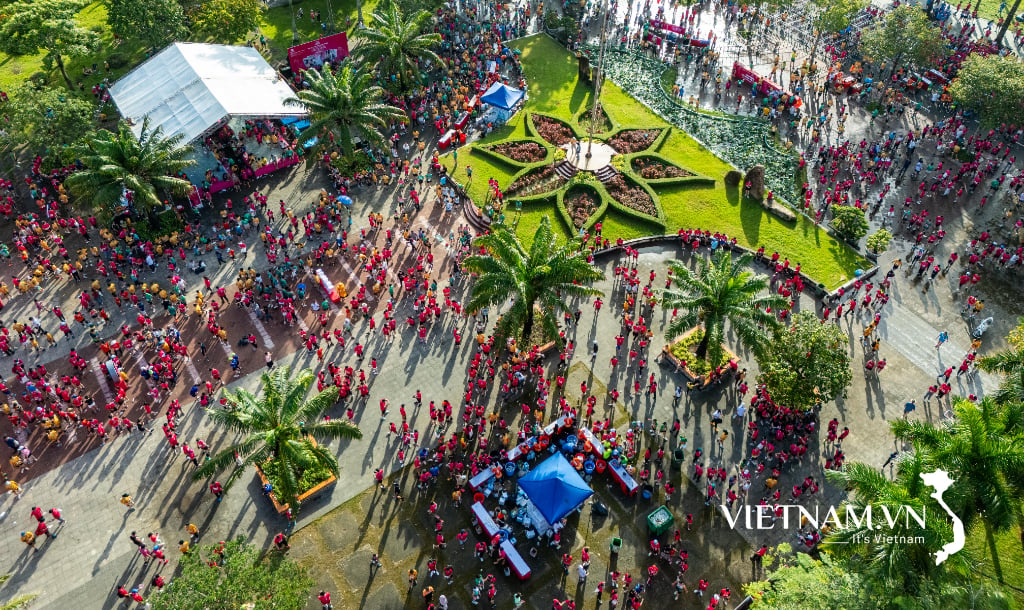

Comment (0)